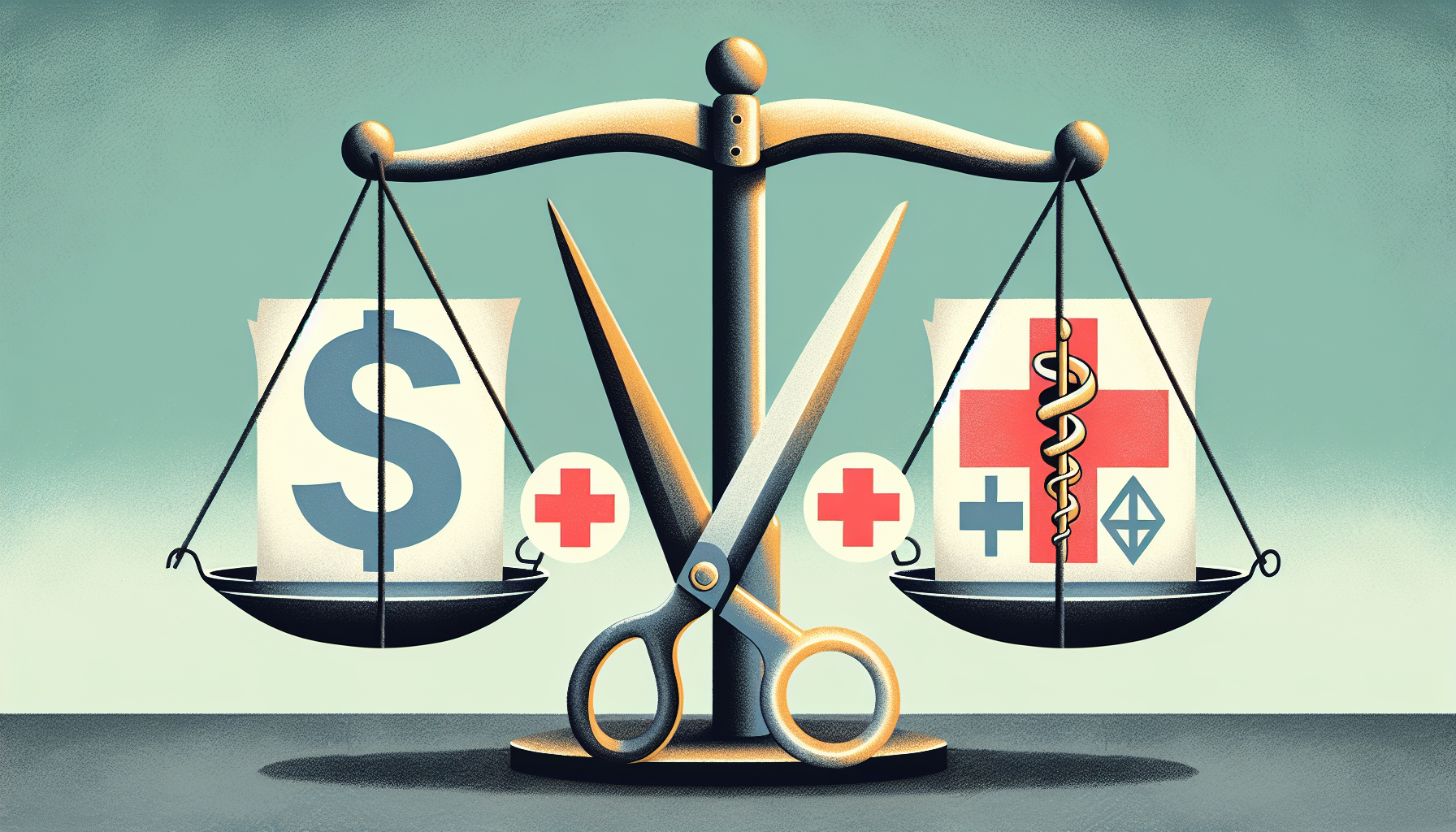How Trump's Tax Bill Could Impact Your Wallet and Healthcare

President Donald Trump's proposed "One Big Beautiful Bill Act" has ignited a firestorm of debate in Washington, D.C., and across the nation. This sweeping 1,116-page legislation aims to extend the 2017 tax cuts, introduce new tax breaks, and implement significant spending reductions. However, the bill's potential impact on everyday Americans, particularly concerning healthcare and the national debt, has led to bipartisan opposition and internal Republican discord.
At the heart of the controversy are the bill's provisions to make permanent the individual income tax cuts from 2017, eliminate taxes on tips and overtime, and increase standard and child deductions. While these measures are touted as benefits for working-class Americans, critics argue that the bill disproportionately favors the wealthy and could exacerbate income inequality. To offset the estimated $5 trillion in lost revenue, the legislation proposes substantial cuts to Medicaid and the Supplemental Nutrition Assistance Program (SNAP), introducing stricter work requirements and shifting more costs to states. These changes could result in millions losing health coverage and food assistance, raising concerns about the social safety net's integrity.
The bill also seeks to roll back clean energy tax credits and increase deductions for high-tax states, further complicating the fiscal landscape. Additionally, it allocates significant funds to border security enhancements and military spending, including reviving Trump's border wall and funding a new missile defense system dubbed the "Golden Dome." These spending priorities have sparked debate over national security needs versus domestic welfare programs.
Despite President Trump's calls for party unity, the bill has faced significant resistance within the Republican Party. Hardline conservatives demand deeper cuts to Medicaid and the repeal of green energy tax credits, while moderates warn that such cuts could harm their political standing and adversely affect their constituents. This internal conflict led to a stunning setback when five Republicans on the House Budget Committee joined Democrats to block the bill, highlighting the deep divisions within the party.
Democrats unanimously oppose the bill, citing concerns that it would strip healthcare from millions of Americans and disproportionately benefit the wealthy. They argue that the proposed tax cuts and spending reductions would increase the national debt, currently at $36 trillion, and undermine essential social programs. The non-partisan Congressional Budget Office estimates that the bill, if enacted as currently written, would add $5.7 trillion to the national debt over the next decade.
The bill's future remains uncertain as negotiations continue. House Speaker Mike Johnson and Majority Leader Steve Scalise are working to reconcile the differing priorities within the Republican Party to advance the legislation. However, with limited vote margins and deep ideological divisions, the path forward is fraught with challenges.
For everyday Americans, the stakes are high. The proposed tax cuts could provide immediate financial relief for some, but the accompanying spending cuts to programs like Medicaid and SNAP could have long-term negative consequences, particularly for vulnerable populations. The potential increase in the national debt also raises concerns about future economic stability and the government's ability to fund essential services.
As the debate unfolds, it's crucial for citizens to stay informed and engaged. Understanding the complexities of the proposed legislation and its potential impact on various aspects of American life is essential for making informed decisions and holding elected officials accountable. The balance between tax relief and social responsibility is a delicate one, and finding a path that promotes both economic prosperity and social welfare requires careful consideration and bipartisan cooperation.
Generational Perspectives
Explore how different generations perceive this topic. Click on a generation to expand.
Winners and Losers in the Tax Bill Debate
The proposed tax bill has sparked debate over who stands to gain or lose. Wealthier individuals may benefit from extended tax cuts, while low-income Americans could face challenges due to proposed cuts to Medicaid and SNAP. The national debt's potential increase raises concerns for future generations who may bear the financial burden. It's essential to critically assess how such legislation impacts different segments of society and strive for policies that promote equitable outcomes.
Finding Common Ground
Despite political differences, there is a shared concern among both Republicans and Democrats about the potential impact of the proposed tax bill on the national debt and essential social programs. This common ground underscores the importance of bipartisan dialogue and cooperation in crafting legislation that serves the best interests of all Americans.
Balancing Tax Cuts and Social Responsibility
The proposed tax bill has sparked significant debate due to its potential impact on the economy and social programs. While tax cuts can stimulate economic growth, they must be balanced against the need to fund essential services like healthcare. It's crucial for policymakers to consider the long-term implications of such legislation and strive for solutions that promote both economic prosperity and social welfare.
Sources
- Republicans reject Trump tax-cut bill after president calls for unity by Reuters (May 16, 2025)
- Why Trump's 'Big, Beautiful Bill' May Be in Trouble by Time (May 16, 2025)
- Trump's 'beautiful' bill spans 1,116 pages. Here's what's inside it by Associated Press (May 16, 2025)